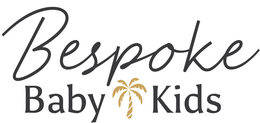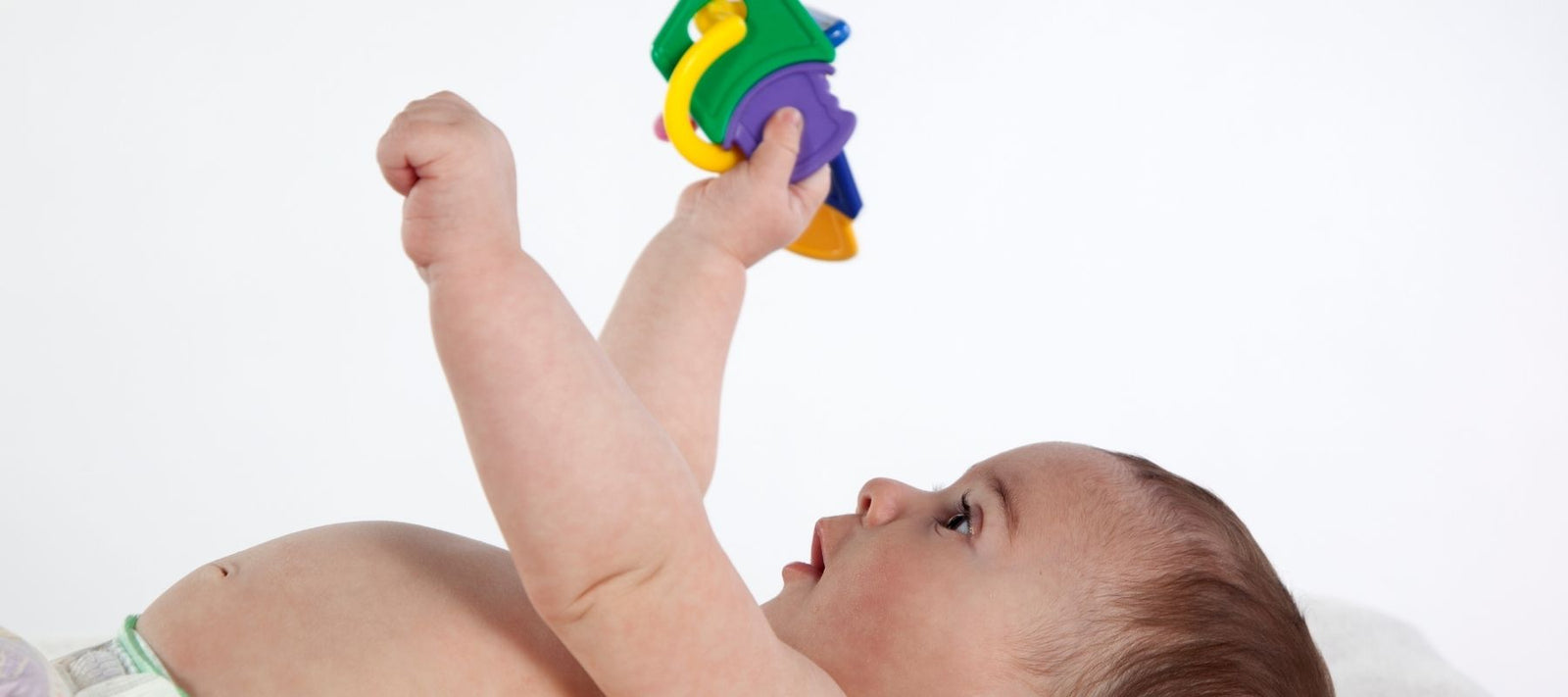For new parents, the baby's first year is a magical, mysterious and often stressful period. Alongside the highs and lows of sleepless nights and getting to know your newborn is the importance of tracking your baby's development. We are often curious about other infants development at a similar age and ask other parents, however it's important to not get too hung up on this, every baby developments slightly differently and the main milestones are what you should focus on, not what others are doing.
So what are the most important baby development milestones during their first year? And what should you be looking out for to make sure your baby's skills are advancing as they should be?
Keep reading to learn the different milestones that most babies reach throughout their first 12 months. We use the term "most" because not all babies do, and that doesn't mean there are developmental issues, it is a guide for you to keep an eye on things. No need to be a nervous wreck about it, but sometimes early detection can help resolve any little setbacks before they get bigger.
At 3 Months Old
By the age of three months, most babies have significantly improved their head control and neck strength. Compared to their first few weeks, babies should be starting to sit for short periods of time in a well-supported position.
Your baby will have formed an incredible bond with you even this early on. You should be noticing plenty of smiles, and even attempts to communicate in their very own language of gurgles.
Another significant baby milestones to look out for is their hand motions and capabilities. Babies should be trying to grasp objects and be able to hold on to items such as toys and rattles when these are placed in the baby's hand.
The good news is, at three months old, your little one should be starting to sleep for longer periods at night. It is not uncommon for babies to start sleeping for as long as five to six hours uninterrupted, meaning some well-earned rest for Mum and Dad. However there are lots of babies who still wake every few hours at this month.
At 6 Months Old
By six months old, you'll have noticed your baby has made huge improvements in their sociability and communication skills. They will be adept at recognising familiar faces and knowing whether someone new is a stranger. Most babies also become interested in their reflection in the mirror by this age.
In terms of mobility, you might be able to see the first signs of your baby crawling at this point. Your little one will most likely start by rocking on their hands and knees and making crawling movements in a backward direction. But, they will shortly become more confident using this mode of transport to manoeuvre themselves around at lightning speed!
There are several cognitive skills to be looking out for at this point. Your baby will be steadily increasing their self-awareness. At six months, this is often expressed by bringing objects to their mouth, passing items from one hand to another, and generally showing curiosity about the world around them. Sensory play toys that provide a variety of textures and shapes for stimulation will encourage the further development of fine motor skills. At this age baby teething toys provide great entertainment and relieve from those sore gums
At 9 Months Old
Around the age of nine months old, a key spurt of your baby's brain development will begin. You'll notice at this age that your baby can understand "no", and will be very vocal. Your little one will likely start plenty of "mamamama" and "babababa" in this period!
Your nine-month-old will likely have favourite toys and might even begin to replicate the gestures and sounds of those around them.
Around this time, you'll start to see your baby pulling themselves up and standing holding onto objects like tables and chairs. Most little ones will be able to pull themselves up to standing, as well as sitting comfortably without support.
You may notice during this period that your baby seems to suffer from separation anxiety, don't worry. It is completely normal for your baby to be forming attachments to others, and showing preferences for who they're surrounded by. At this age than can even have a preference between Mum and Dad, however don't worry this is just a phase and will chop and change throughout their growing up.
There are plenty of games that babies can begin to play at nine months old that will assist with their development. These include passing items backs and forth between you, building blocks into a tower, and the old favourite: peek-a-boo!
At 12 Months Old
It's certain that your baby's first 12 months will have been a learning curve for all involved! At the age of one year, there are several important skills to keep looking out for.
Your baby will be seeming more and more like a toddler at this age. Most likely they will be clearly saying "mama" and "dada" as well as a few other words. What's more, they should be able to respond to simple phrases and instructions, for example, "come over here" or "would you like"
You might also notice your baby starting to show fear at this age. This is absolutely normal and just part of their emotional and cognitive development. Other cognitive skills that your baby might demonstrate at twelve months old are poking with their index finger, placing items in and out of containers, and shaking and throwing items.
When to See Your Doctor
The different stages of baby development discussed in this article should be considered generalisations. You might find that your baby is exceeding what is normal for their age in some areas, but a little behind in others. This is normal, and to be expected.
However, there are some signs to be wary of. These should be indications that it is time to see your paediatrician to ensure you can help your baby develop their full potential. One example would be if your baby loses skills they have previously developed.
If you're concerned that your baby cannot see or hear properly, or that they are not moving both of their arms and legs, this is another sign that you should contact a professional.
It's all too easy to compare your baby to others, and worry that they are developing "too slowly". However please keep in mind, all babies are different and you shouldn't compare to other babies / parents too much. If you have serious doubts, get in touch with a doctor.
Those Are the Key Baby Development Milestones
It's really important to remember that all babies develop in different areas at different speeds. But, if you're at all concerned, make sure you talk to a professional.
For more interesting reads, check out our other articles on pregnancy and parenthood.

